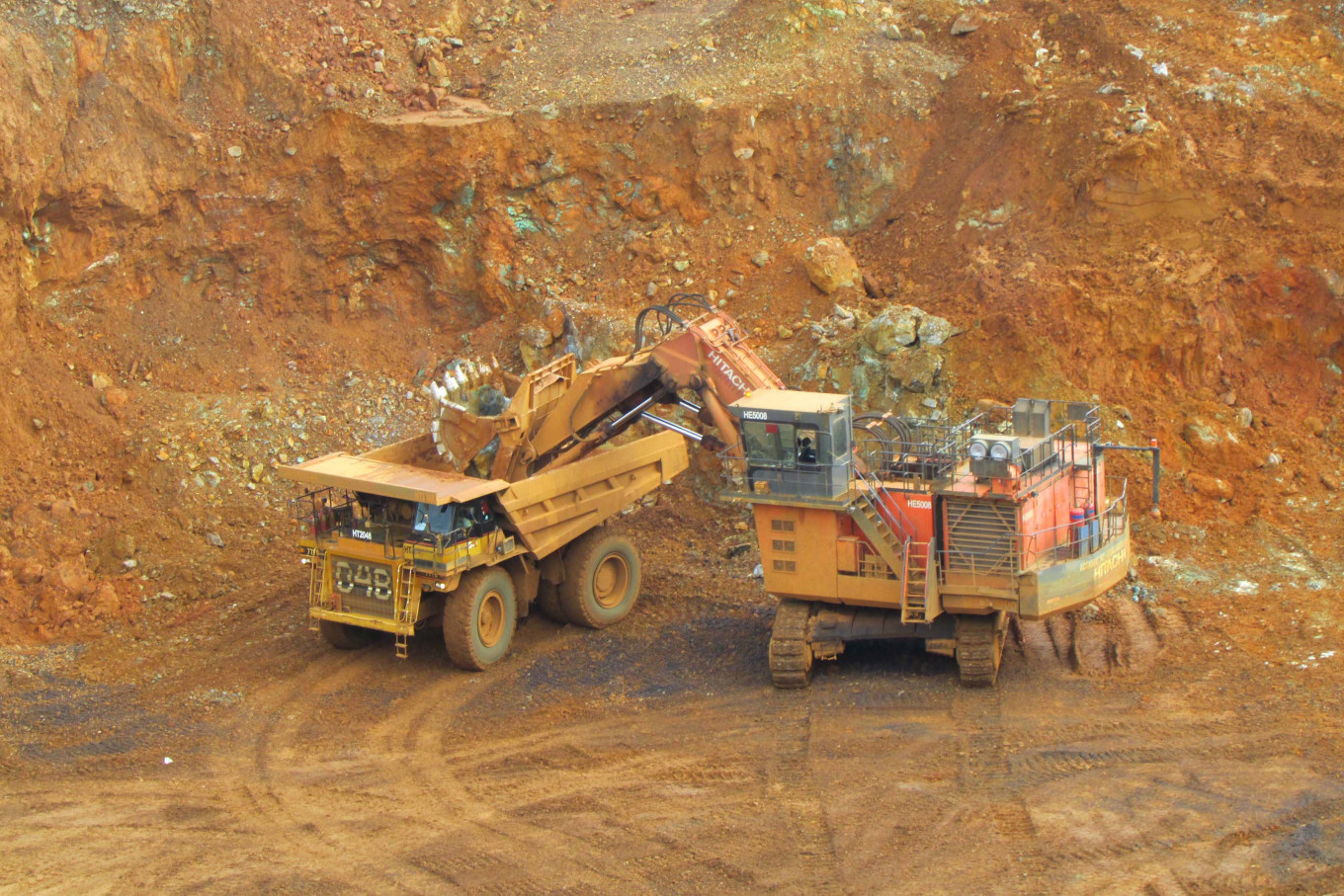Popular Reads
Top Results
Can't find what you're looking for?
View all search resultsPopular Reads
Top Results
Can't find what you're looking for?
View all search resultsLess hubris, more humility
It is better for Jokowi and his ministers to respond to criticisms of the nickel export ban, such as those from the IMF, with eloquence.
Change text size
Gift Premium Articles
to Anyone
P
resident Joko “Jokowi” Widodo may be, as Ben Bland puts it, a man of contradictions. But when it comes to critical minerals, he is a man of his word. At least until now.
Ever since he pledged to defend Jakarta’s decision to ban nickel and other critical minerals, Jokowi and his aides have gone all the way to uphold the policy. This includes appealing a World Trade Organization verdict that found the nickel ore export prohibition in violation of the global trade regime to which Indonesia is a party.
Indonesia is now facing new pressure after the International Monetary Fund recommended that the country gradually lift the bans to prevent retaliations from trading partners.
In its latest country report, the IMF said Indonesia’s downstream policies could potentially lead to a loss of revenue from export taxes as the policies lack consideration of cost-and-benefit analysis on the impact of the bans.
While it is true that many countries are upset by Indonesia’s mineral export bans, it is hard to ignore the fact that Indonesia can generate revenue of more than US$20 billion a year from nickel ever since the policy came into force in 2020. Before the ban, Indonesia earned less than $1 billion from the mineral, which the country is known to have the world’s largest reserve.
After facing similar pushback from the Group of 20 last year, Jokowi and his ministers came up with the idea to create an alliance of critical mineral-producing countries, which he said would resemble the Organization of Petroleum Exporting Countries (OPEC) in the oil industry. The move was driven by the government’s ambition to turn Indonesia into a global hub of electric vehicle (EV) battery manufacturing.
It was also met with much skepticism at that time due to the highly closed nature of the mineral supply chain of EVs, in which automotive manufacturers sign deals directly with mining companies to secure supplies.
But recently the Indonesian Chamber of Commerce and Industry (Kadin) signed an agreement with the state government of Western Australia to develop nickel and lithium processing. Amid the global race to secure supplies by EV manufacturers, the agreement paves the way for a strategic alliance that may strengthen the position of both parties as producers.
As Indonesia is cementing its grip as a mineral producer, it is important to watch its own move, as any misstep may cancel out all the work that it has built. Therefore, it is better for Jokowi and his ministers to respond to criticisms, such as those from the IMF, with eloquence.
Jokowi and his Investment Minister Bahlil Lahadalia may find strong words such as “fight” or “sovereignty” as an expression of their maximum effort to protect the country and its people, but to others, especially in the realm of global trade and the international community, could be interpreted as inflexibility and a show of arrogance that may sour relations with trading partners.
Jokowi, as he once admitted, does not want Indonesia, as a nation that endured centuries of colonialism, to repeat its own history of being oppressed by other nations. He also does not want the country to emulate Latin American countries that never escape the middle-income trap.
What Jokowi must also put into consideration is that as Indonesia grows stronger in economic and political influence, it also must be fully aware of its strength and find the best way to build relations with other countries. What it considers an act of survival may be perceived as an attack on other countries.
It is important for Indonesia to engage in more dialogues and negotiations to address the criticisms, especially related to trade and economy, rather than in a war of words in media.
Sometimes the oppressed, when they survive, become the oppressor themselves. Indonesia is still far away from its goal of becoming a high-income country in 2045. It is a marathon, rather than a sprint. Too much hubris will only drain our energy for nothing.











